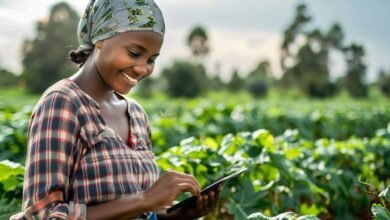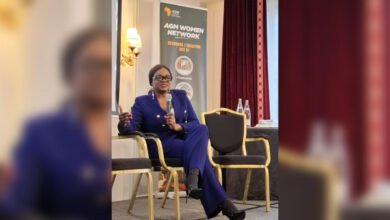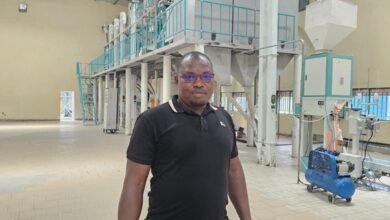INTERVIEW – Tayeb Amegroud: « With renewable energy, Africa can make a qualitative and quantitative leap, as with mobile telephony »
Tayeb Amegroud, an energy planning expert and senior fellow at the Policy Center in Morocco, believes in Africa’s potential to integrate renewable energy into the economy. Without denying the challenges that still need to be addressed.
Interview by Mérième Alaoui
What is your assessment of the development of renewable energies in Africa?
I believe Africa’s major challenge remains simple access to energy. Between 600 and 700 million Africans, more than half the population, still do not have access to electricity. Some countries have an access rate close to 10%, such as the Central African Republic, Chad or Malawi. When we talk about energy in general, we have to make a distinction between North Africa, South Africa and the rest of the continent. As far as renewable energy is concerned, it contributes barely 10% to electricity production, although this has increased in the last decade. Much of this comes from hydroelectricity, 6.5%. Wind and solar are around 4%. But what is very encouraging is that solar installations have increased significantly in the last decade, reaching double-digit growth. Most countries have set targets to be reached by 2030, so there is a general and shared desire to accelerate the deployment of renewable energy.
Does the awareness of climate change alone explain this rapid growth?
Climate plays a role in the energy policies of the African countries, but it is not the decisive factor. Africa is not responsible for the stock of emissions in the atmosphere. African emissions are barely 5% for a population that represents 17% globally. Today, these investments are also made for economic reasons. Solar energy, especially photovoltaic, offers a practical and much cheaper alternative to allow communities to access electricity quickly and easily.
The sector has seen a significant drop in equipment costs. Prices for photovoltaic modules have been cut by a factor of five since 2012. Solar energy can come in several versions, and is perfectly adapted to the African context. Large centralized solar photovoltaic farms like those built in Morocco, Egypt and other countries, sometimes combined with a storage solution, can meet the needs of large urban centers or be integrated in an interconnected power system. On the other hand, communities or regions of intermediate size can be supplied by isolated microgrids. Scattered communities can be powered by rooftop systems.
Morocco is billed as leader in solar energy. Can you confirm this?
Let’s say that Morocco is Best in Class in its category, but not a global leader. It is true that quite ambitious announcements have been made since 2010. In 2015, in the aftermath of COP 21 and during COP 22, these ambitions were based on 42% of renewable energy share in the total electricity production capacity. Today, we are at 35%. Everything has fallen behind, especially in the solar sector. In the wind sector, we are in line with the ambitions. But the objectives have been revised upwards for 2030 and 2050. All this is happening in a turbulent context: the COVID pandemic, a global economic crisis and high inflation. Overall, the results are not bad, but we can do much better.
How to explain this delay? Morocco does not have a financing problem though…
Access to finance is less complicated in Morocco than in other countries. It is just a problem of internal governance to the sector. The two main public agencies are not aligned. There is a gap between the real political will, at the highest level, which expresses its discontent, and the reality on the ground.
As far as solar energy is concerned, how could the continent benefit more from this energy with which it naturally abounds?
The potential of solar energy is very significant indeed. The continent is very well endowed and has a significant amount of sunshine. Water resources also remain under-tapped, especially in Central Africa. The Inga III dam project in the DRC has been talked about since the 1970s. If completed, it will be one of the largest in the world and will be able to supply several countries in the region. There is also the construction of the Renaissance Dam, on the Blue Nile, in Ethiopia. But this kind of project also brings its share of controversy. Wildlife is displaced, communities are forced to move. It can even cause geopolitical conflicts, as between Egypt and Ethiopia. There is another form of natural energy that is very promising, especially in the Horn of Africa: geothermal energy, the exploitation of underground heat. I am thinking of Djibouti, Eritrea, Somalia and Ethiopia.
Would accelerating access to renewable energy be a quick way to make up for lost time?
I would even say that Africa can make a qualitative and quantitative leap, as with mobile telephony, by skipping an intermediate phase. For example, in Morocco, we first went through fixed telephony and therefore the development of an extensive network of telephone lines and the associated infrastructure. All this costs too much money and is complicated to set up. Other countries in sub-Saharan Africa have avoided this phase and are now connected through mobile telephony.
Are you confident about the development of green energy in Africa, on the eve of COP 27?
I think we can catch up. But there are many factors that have slowed down the momentum which started in 2010. The pandemic, the food crisis, the over-indebtedness of African countries, the public debt has risen from 30 to 60% for these countries, which is considerable compared to their ability to repay. Not to mention the Russian-Ukrainian war. Things may move forward painfully in the coming years, but in the long term, these resources can only develop further.
Fossil energy deposits, especially gas, have recently been discovered. Africa can hardly cut itself off from this godsend, given the geopolitical context…
Significant deposits have, indeed, been discovered in Mozambique, Uganda, Tanzania, Ghana, the maritime border between Senegal and Mauritania …I believe the dilemma is: developing the exploitation of these fossil energy resources to contribute to the prosperity and socio-economic development of countries or addressing global warming … The constraints and challenges of the short term take over. Rightly so, I think. These are important resources, there is a growing demand, in the context of the war in Ukraine. The prices of most fossil fuels have reached unprecedented levels. This issue is finally linked to the issue of climate justice. These countries cannot give up exploiting these resources as long as they are low polluters and not largely responsible for the cumulative emissions. If solidarity is slow in coming, beyond a few gestures, it will be difficult for developed countries to criticize this position.






